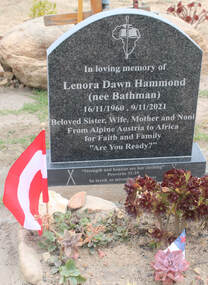 Personal Grief Over a year ago, I lost my beloved wife Lenora to cancer and chemo. I have certainly cried more in the last 16 months than in the rest of my life combined. To lose your best friend and life partner is a grievous burden. The apostle Paul wrote that the last enemy to be destroyed is death. Death is our enemy. Death destroys life, beauty and potential. It is a curse from the Fall. The wages of sin is death. The Certainty of Death In a multitude of ways death can come to anyone, at anytime, anywhere. Vehicle accidents, crime and violence, through war and disease, through infections, viruses and medical malpractice, from adverse reactions to vaccines, from heart attacks, strokes and cancer. It can take the very young as well as the very aged. Death and Taxes Benjamin Franklin quoted Daniel Defoe when he said: "In this world nothing can be said to be certain, except death and taxes." 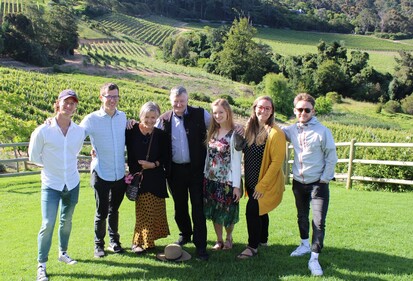 Denial and Distraction Yet modern man tries his best to deny it, or at least to so distract ourselves so as to not think of it very much. Yet it was not always so. Socrates declared that the essence of philosophy is preparation for death. We need to number our days aright that we can gain a heart of wisdom (Psalm 90:12). The Bible says that it is better to go to a funeral than to go to a party, because the living should always remind ourselves that death waits for us all (Ecclesiastes 7:2). From the Thousand Bomber Raids to ICU My mother confronted death from a very early age. She was just six years old when she experienced her first aerial bombardment. She was at the circus in Berlin when the RAF bombers came overhead and unleashed their cargo of death. She was almost trampled in the stampede of the crowds trying to escape the explosions. My mother endured multiple thousand bomber raids and saw her neighbourhood in ruins and neighbours dead and mangled. Throughout her later life as a medical nurse she frequently cared for the sick, injured and dying in Intensive Care Units. My father who fought all 6 years of the Second World War, mostly in the 8th Army in North Africa and Italy was traumatised by the sights of death and destruction, including of men he knew from his unit. He seldom spoke about the war, except to express his disgust about Hollywood films that glamorised or distorted the reality of what he had seen first-hand. 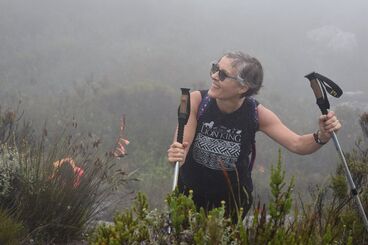 Missions in War Zones As a missionary, often in war-torn areas, I was confronted with people dying from man-made famine, shocking scenes of massacres, in the killing fields of Mozambique during the Holocaust of Rwanda and under fire in Sudan. Nothing can prepare one for the shock of seeing a mangled vehicle and mutilated people at the scene of a landmine. Or the victims of petrol bombs and necklace murders. Or a church building strewn with corpses. Coping Mechanisms How can one cope with such horrific suffering and atrocities? In my experience, those of us who are called to serve the suffering need to armour plate our hearts, minds and emotions so that we can do what needs to be done to practically care for the survivors. One needs to focus on what can be done practically to meet immediate needs. It does not help anyone if the caregivers, or emergency workers, break down in tears every time they are confronted with crisis and tragedy. 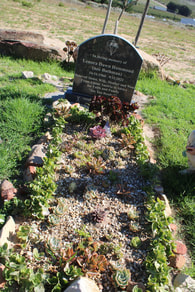 Post-Traumatic Stress Disorder But at some point one needs to process what we have witnessed. Post-Traumatic Stress Disorder can be very real for soldiers, policemen, firemen, ambulance and paramedic staff, nurses and doctors. We need to turn to the great Physician, our Lord Jesus Christ. I have had to fall on my knees on countless occasions and pour out my grief, frustrations and tears to the Lord. To pray the Psalms. To communicate the confusion, frustration, grief, anger and rage. To implore His intervention. To plead for His healing hand. To bring these injustices to the foot of the throne of God. Learning Through Suffering Then there needs to be a time of reflection on what we have learned. We need to listen to those who have been suffering and learn from their insights and needs. What is God saying to us through this? What does the Bible say about this? How can we be better prepared to help others? 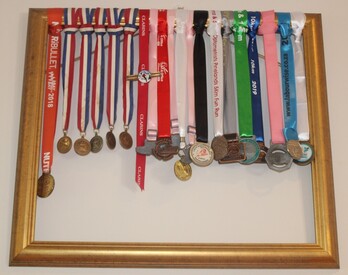 Serving the Suffering Most of my life has been dedicated to serving persecuted Christians in Restricted Access Areas throughout Africa. Researching the facts. Listening to the people on the ground. Speaking up for them. Making their stories known. Mobilising prayer and action on their behalf. Training teachers. Equipping medics. Delivering the Bibles, school textbooks and medicines that can make a difference. When Tragedy Hits Your Home However much we may have been deeply affected by the sufferings of others, nothing really prepares you for when tragedy comes to your home. The deaths of my grandparents left me with a deep sense of loss, but they lived in Europe and I live in Africa. The death of my father hit me hard, seeing him deteriorate from heart attacks and strokes. I have hated smoking from a young age, but seeing how it destroyed my father's health filled me with even greater determination to never have anything to do with that health destroying habit. Even as my father was on an oxygen machine, struggling to breathe, he would still be trying to smoke! Doctors have informed me that nicotine is one of the most addictive substances on earth. Seeing my strong father become weaker and weaker until he could barely breathe was traumatic. He died at Groote Schuur Hospital in the early hours of Christmas Eve 1986. 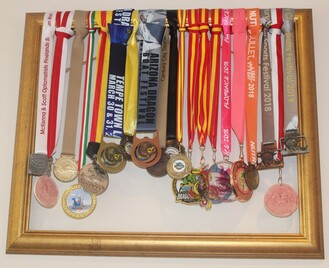 Amputation Can Save a Life My mother also smoked and her health deteriorated. The doctor warned her that smoking had clocked up her arteries, she had serious circulation problems and was being poisoned to death. The gangrenous part of her foot needed to be amputated to save her life. As a nurse, my mother was a very difficult patient and refused any amputation. When she fell into a coma the doctor turned to me for authorisation for amputation, which now needed to be her whole leg above the knee! Knowing that my mother had an abhorrence for amputation and had forbidden my brother and I to ever consent to it, I phoned my elder brother who was living in the Transvaal. He pointed out that there was no point in our mother hating both of us and I was after all the one on the ground in Cape Town! So I reluctantly signed the authorisation. The recovery to health of my mother was dramatic. Before the amputation her complexion was grey and she was dying. Once the gangrenous limb had been amputated her whole complexion changed for the better. With losing her leg, my mother also lost her mobility, her work, her vehicle and her home which was on the first story of an apartment block without any elevator. We welcomed her into our home and built a cottage in our garden for her to live in. She enjoyed another 3 1/2 years of life after that. Her grandchildren were delighted to have their Omi as part of their daily lives. Her relationship with the Lord flourished. As traumatic as the amputation was, it did save her life, in more ways than one. 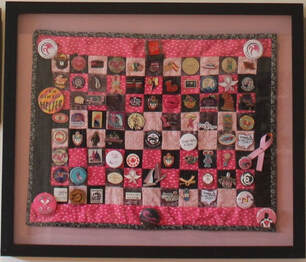 Most People Used to Die at Home My grandparents and my parents each died in the hospital ICU. However, my wife, Lenora, chose to rather die at home. This was at the end of an 11 year on and off again battle with cancer and chemo. We cannot say with certainty which killed her, but chemotherapy most certainly ruined her health. Just a year before Lenora was energetically Dragon boat racing, hiking and climbing mountains. Five years before Lenora had informed her oncologist that she never wanted to do chemotherapy ever again. However, the oncologist somehow convinced her to subject herself to chemotherapy yet again. It shattered her health. Over the last months Lenora was in constant pain and frequent nausea. She aged decades in just a couple of months. It became increasingly difficult for her to move around. There were frequent visits to the Hospital, blood transfusions when her platelets were too low, a cocktail of medicines and supplements that needed to be imbibed. To keep all this straight, we maintained an exercise book to record when and what was taken or administered on a daily, or hourly, basis. She became unable to walk unaided without crutches, walker or wheelchair. Just being able to move from the bedroom to the bathroom became agonising and difficult. Lenora realised that her body could not survive for much longer. She determined to rather die at home with her family then in a hospital ward amongst strangers. 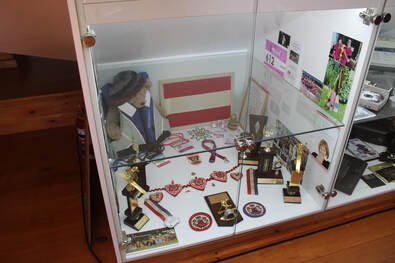 Caring for Your Loved One at Home While none of us were medically trained, we sought to rise to the challenge and honour her wishes by becoming her caregivers. We received guidance and help from Hospice. All manner of equipment was borrowed, or rented, in order to accommodate and care for Lenora as her health rapidly deteriorated. We brought in an oxygen support machine. With frequent (Level 4) scheduled power failures, we became adept at sprinting down the hallway to turn on the generator to keep her oxygen flowing uninterrupted through the night. Friends and family members came up with creative ways of making her life more comfortable and less painful. We brought our meals through to the bedroom to include her in the family meal conversation. As Lenora needed constant 24-hour care, family members took it in turns to watch her and help her throughout the day and, in my case, at night. It became difficult for Lenora to even drink. We needed to lift up the glass with a straw. After a time she was no longer even able to use the straw and we used syringes filled with water (to which we had added rehydrate packages with electrolytes and other essentials). Ministering to Your Loved One as They Approach Death Lenora’s last week was very restless and I was up constantly throughout the night, seeking to help her, reposition her, administer medicines, or give her water through a syringe, hold her hand, read the Scriptures and pray with her. Our daughter, Daniela would often have inspiring music, such as Handel’s Messiah, which both she and Lenora had sung in their choirs on numerous occasions. All of this provided an inspiring atmosphere and many great memories in her final days and hours. In the early hours of Tuesday, 9th November, between Level 4 power failures, Lenora passed into eternity. 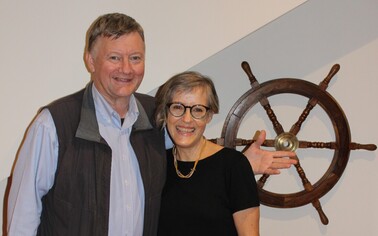 On the Brink of Entering Eternity We know that Lenora was not afraid to die. She often told people: “I know where I am going!” However, it was traumatic for all of us to see her suffer pain and discomfort over so many months. The doctor expressed his amazement that she had lasted so long. While nothing fully prepares one for this loss and we shed many tears, there was also, amidst the grief and loss, a sense of relief for Lenora that she was finally out of pain and free from the cursed cancer and chemo. It was one of our final acts of love and service to attempt to be her caregivers during a time of lockdown lunacy where innumerable families were prevented from visiting dying relatives in Hospital. It was Lenora’s greatest desire to live to see her grandchildren and to have her children and grandchildren “no further than 5 minutes away!” Well, that desire was certainly granted. All four of our children and all three grandsons were living at the beautiful home and garden that Lenora has so lovingly built up and decorated for over three decades. Our Lord Jesus Christ declared: “I am the Resurrection and the Life. He who believes in Me will live, even though he dies.” John 11:25-26 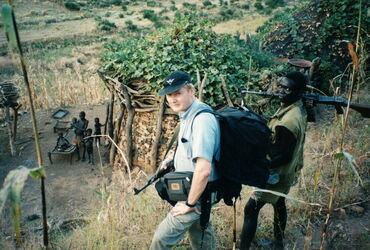 Positive Steps to Cope with grief In the last 16 months since losing my best friend and life partner, I have wept more than in rest of my life combined. As I had to resort to being something of a bachelor again, doing things that Lenora always did for me, going to the Tailor, pharmacist, framer, doing shopping, cooking and general caring for home and garden, my heart is full of memories. Grief is a very lonely journey. I thank God that Lenora did not have to go through the grief of losing her husband and doing all the sorting out and organising of gravesite, headstone and other essential arrangements. I am so sorry that I was not able to protect her from cancer and chemo, I still feel rage against the oncology department that destroyed her health. But I am grateful for every opportunity to cherish her memory and to preserve and maintain the home and garden that she so lovingly built up and invest in our grandchildren whom she cherished. I searched for and organised Lenora’s skiing trophies and medals for ice-skating, running and Dragon boat racing and hung the frames with her medals in our Upper Room, dedicating one of the glass cabinets to display her trophies and other precious mementos. It was therapeutic to honour her memory in this way. So often I consider what would Lenora want me to do? What would she have done? We had Lenora's sister, Debbie, from Salzburg visit us for 2 weeks. That was special, especially for the children who now turn to her for advice and counsel like they did to their mother. As far as being the sounding board, confidant, adviser and relationships that Lenora was, I am a poor substitute and I am glad that they have an aunt that they love and trust. Everyday there are so many triggers to remind one of precious times, painful memories and just how much she is missed. Anniversaries become very difficult as well. Designing and installing the headstone at the gravesite on the first anniversary of her death was very emotional, but important and somewhat therapeutic as well. I have found it very healing to dedicate myself to helping to raise our grandchildren, spending quality time with them, taking them out on adventures, such as hiking in the forest, teaching them skills, reading and praying with them. We have also planted a milkwood tree along our canal in memory of their grandmother. At the gravesite we planted a jacaranda tree. Both favourites of Lenora. She had green fingers and developed beautiful gardens. It is only right that we cultivate a garden to flourish were she has been buried.  I remember my mother expressing disappointment that I did not talk much about my father. Well, I had avoided speaking about memories of my father so as not to upset my mother. However, I came to understand that she wanted her son to be relating memories of her husband to her grandchildren. When we are around friends and family who are grieving, it is better to recount positive and inspiring memories of the loved one. Sharing happy memories is therapeutic and an important part of the grieving process. Studying the Scriptures, it is most encouraging to see that the Lord came to heal the brokenhearted ( Luke 4 :18)and that Christ Jesus took our griefs and sorrows upon himself on the Cross(Isaiah 53:4). When you lose a loved one, Earth becomes now so much poorer and Heaven becomes so much richer and precious. “I am convinced that neither death nor life, nor angels nor demons, neither present nor the future, nor any powers, neither height or depth, nor anything else in all creation, will be able to separate us from the love of God which is in Christ Jesus our Lord.” Roman 8:38-39 In sure and certain hope of the Resurrection of the body. Dr. Peter Hammond ([email protected] )
0 Comments
Leave a Reply. |
DiscipleshipArticles
All
Archives
May 2023
|

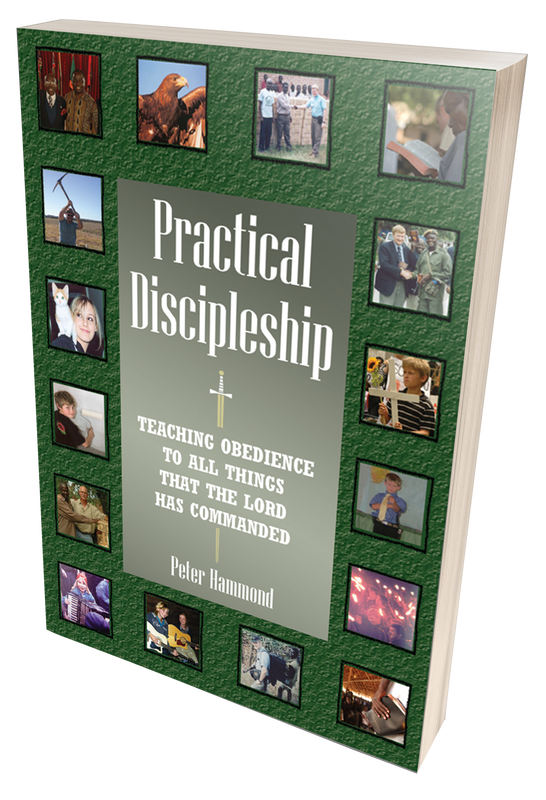
 RSS Feed
RSS Feed